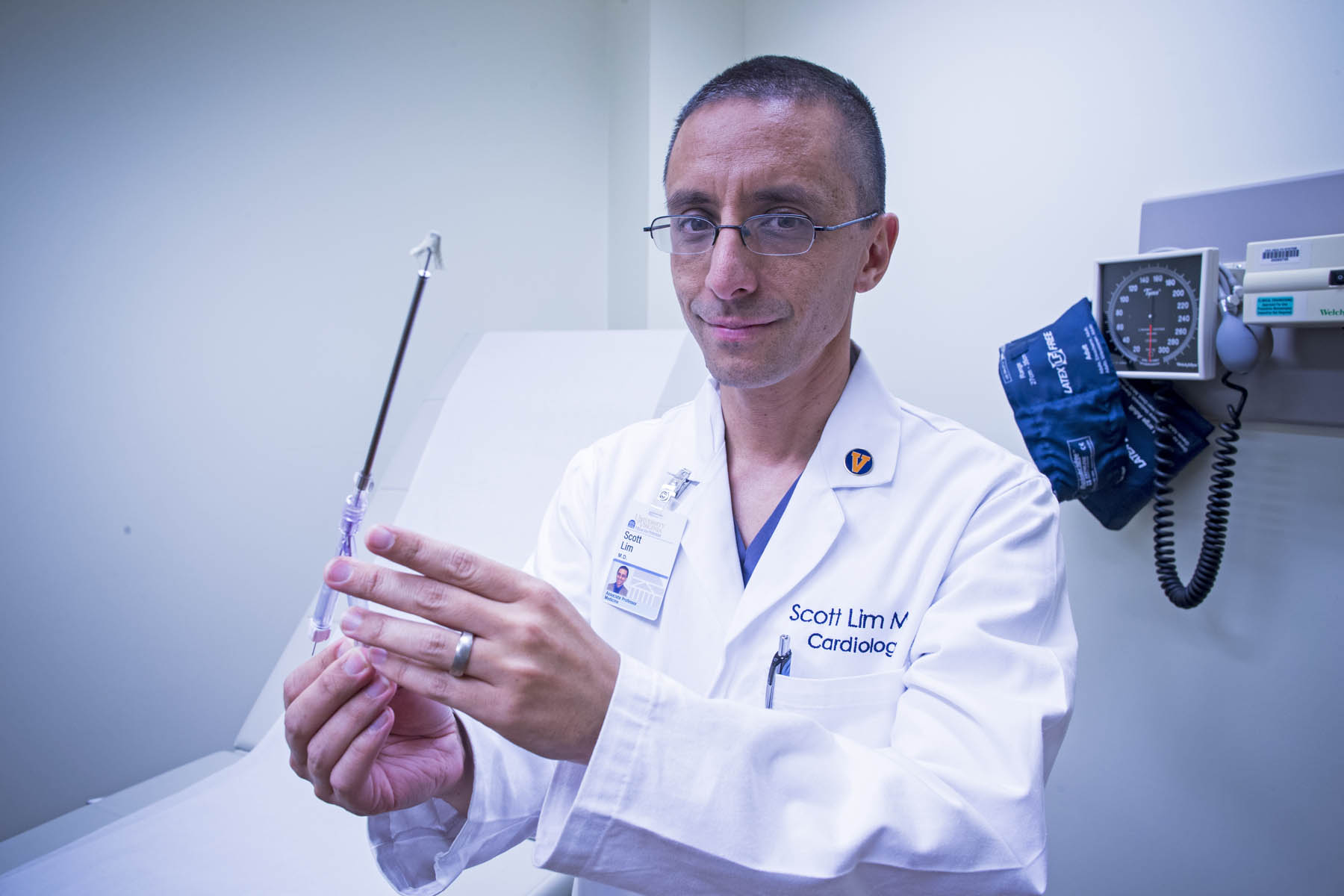A minimally invasive procedure is the first effective treatment for patients who are at high risk for standard open-heart surgery for a leaking heart valve, a study led by a team of University of Virginia School of Medicine researcherers has found.
The new procedure repairs the mitral valve, which regulates blood flow between chambers of the heart. Degenerative mitral valves cause severe mitral regurgitation, which occurs when blood flows backward into the heart. Left untreated, severe mitral regurgitation can lead to heart failure and death.
The device used to repair the mitral valve, Abbott’s MitraClip device, was recently approved for use by the U.S. Food and Drug Administration. The U.Va. Health System is among the first hospitals in the country to offer this procedure for select high-risk patients with severe degenerative mitral regurgitation. The U.Va. Heart Valve team trains physicians from around the world to perform this procedure.
“Patients whose health would not allow them to undergo surgery haven’t previously had a treatment option for their mitral regurgitation,” said U.Va. interventional cardiologist Dr. Scott Lim, who led the study. “This study demonstrated that the MitraClip is a viable treatment for this life-threatening condition.”
Published by Lim and colleagues in the Journal of the American College of Cardiology, the study examined outcomes for high-risk patients with severe degenerative mitral regurgitation. The patients were at high risk for open-heart surgery to replace their mitral valve due to one or more risk factors, such as frailty or additional severe medical conditions.
The study examined the safety and effectiveness of the MitraClip, inserted through a catheter that reaches the patient’s heart through a small leg incision. One or two MitraClips are then placed on the leaking portions of the mitral valve.
More than 95 percent of patients in the study had a MitraClip successfully inserted, and patients saw health improvements in several areas, including:
• Improvement in their mitral regurgitation;
- Reduction in hospitalizations for heart failure;
- Improvement in heart function; and
- Improvement in their quality of life, as measured by surveys before and after the procedure.
“The study found that the MitraClip procedure is safe and provides significantly improved outcomes for patients with severe degenerative mitral regurgitation who are at prohibitive risk for surgery,” Lim said.
Media Contact
Article Information
November 15, 2013
/content/study-new-heart-valve-repair-option-provides-hope-high-risk-patients

